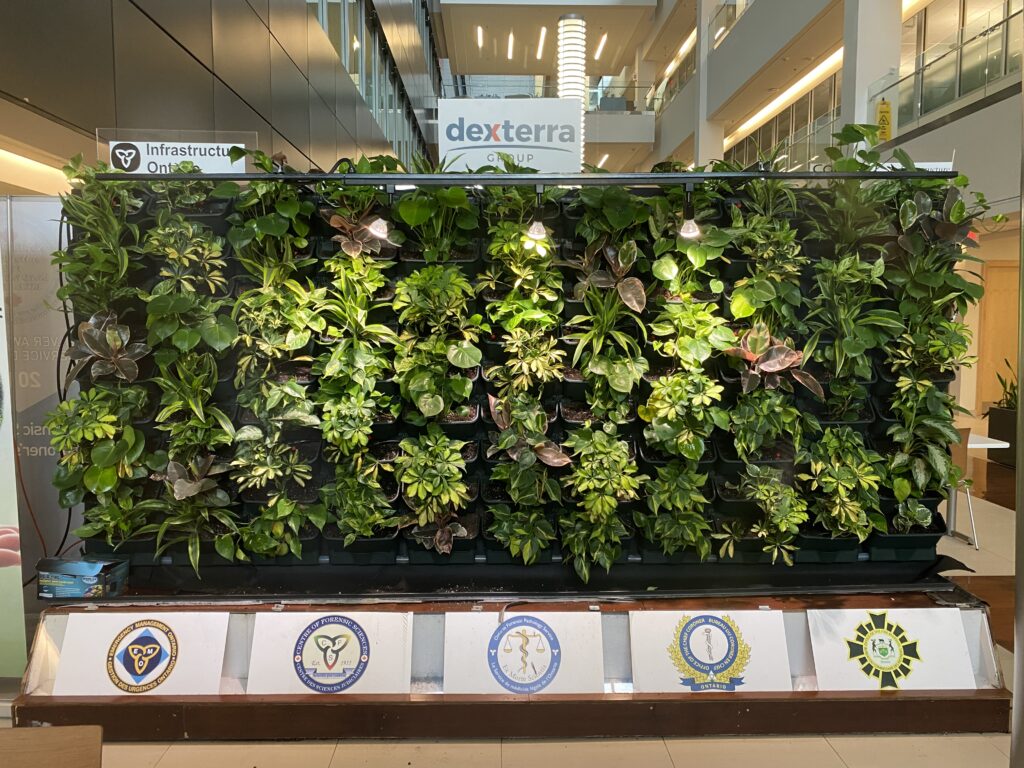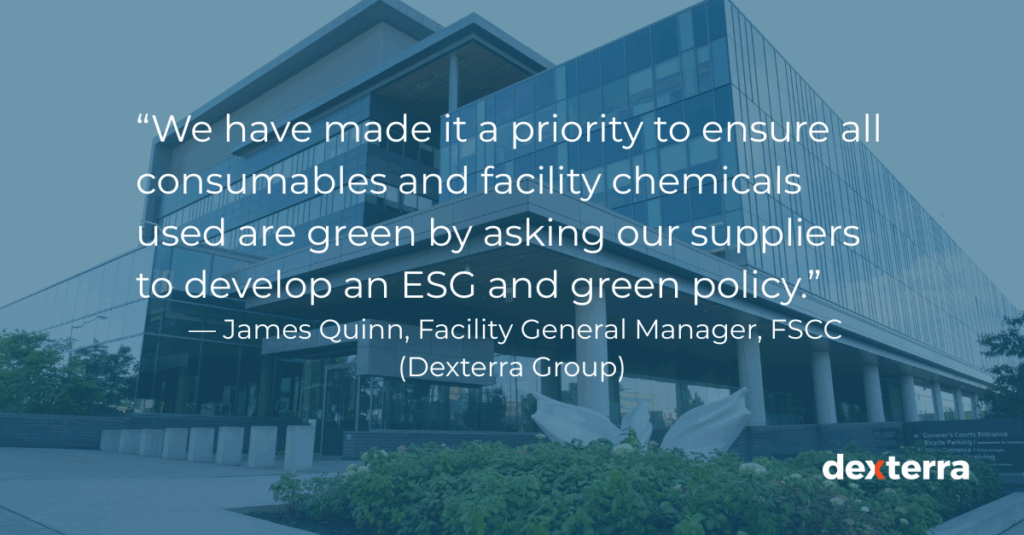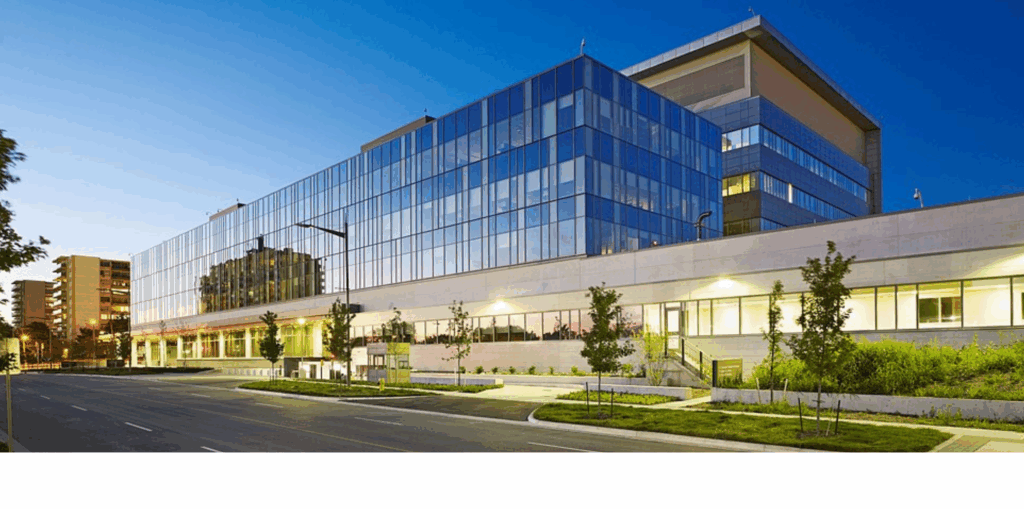With both LEED and BOMA BEST® certifications, the Forensic Services and Coroner’s Complex (FSCC) demonstrates what’s possible with sustainable facility management, from design to daily operations to procurement strategy.
The FSCC offers a living case study in sustainable building operations. Moreover, it provides a roadmap for other facilities aiming to move the needle on their environmental impact, particularly in managing Scope 3 emissions.

What does Scope 3 Emissions Mean?
Scope 3, or indirect emissions, are the most complex and often overlooked source of a building’s carbon footprint. Scope 3 emissions are the indirect greenhouse gas emissions that occur across a building’s entire value chain. This includes the production and transport of goods and services to waste generation and business travel. For facilities management teams focused on sustainability, this includes the sourcing of janitorial supplies and HVAC parts. It also involves emissions produced by service providers commuting to the site.
While often the most difficult to measure, Scope 3 emissions can account for up to 70% of a building’s total carbon footprint. Thus, sustainable facility management is pivotal for organizations aiming for net-zero emissions.
Tackling Scope 3: The Hardest Emissions to Measure
“Scope 3 emissions are the hardest to track — but they make up the majority of emissions in commercial real estate,” says Manasi Koushik, Dexterra Group’s VP of Sustainability, Quality & Community.
The FSCC’s commitment to sustainability is apparent on the outside, with rooftop beehives, Indigenous gardens, plant-filled living walls, and an abundance of natural light. However, tackling scope 3 emissions is another matter altogether.
To better understand and manage these emissions, Dexterra conducted a materiality assessment. They identified the ESG topics most relevant to FSCC’s impact. This includes sustainable procurement, Indigenous relations, and energy efficiency.
This led to a more refined supply chain strategy and agreements with suppliers. Manasi shares, “You can put the onus on that producer and say, ‘This is our philosophy. This is our policy on waste materials. We will not accept single-use plastics or throw-away materials. If you bring that to our location, you will take it back,’ which is then embedded in your contract agreement with the supplier.”
“It’s an exercise in business integrity,” she adds. “It’s about businesses becoming more aware of what impacts their activities have and understanding that we’re all connected, that everything is connected.”

A Blueprint for Better Buildings
The FSCC building shows that sustainable operations are not only possible in complex, high-security government buildings — they’re scalable. By addressing scope 3 emissions thoughtfully, sustainable facility management enables any facility to take steps toward reduced emissions. Engaging suppliers and utilizing measurement tools are part of this approach.
Read more about Sustainability at Dexterra
What This Means for Other Facilities
If you’re managing a facility, ask yourself:
- Are we tracking emissions across our supply chain, focusing on sustainable facility management?
- Do our vendors have sustainability targets?
- Are sustainable procurement policies embedded in our contracts?



